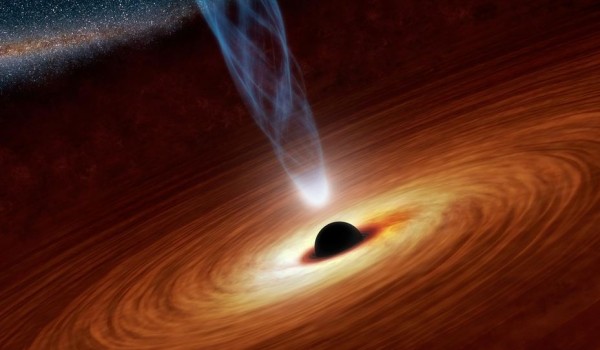A recent study showing the Universe is expanding as predicted by the theory of cosmic inflation but not as fast as scientists have believed won't postpone "The Big Rip" or the end of the Universe.
Since the 1980s when cosmic inflation was developed by physicists Alan Guth and Andrei Linde to explain the origin of the large-scale structure of the cosmos, it was recognized that dark energy was the force propelling this relentless cosmic inflation.
Dark energy is the most accepted hypothesis to explain the observations since the 1990s indicating the universe is expanding at an accelerating rate. The speed of that expansion has been put into serious question by recent findings that the Type 1 supernovae commonly used to measure distances throughout the Universe isn't constant but actually falls into different categories.
As a result of this finding, a team of astronomers from the University of Arizona believe theories about the constant acceleration of the universe, or cosmic inflation, might be flawed.
A Type Ia supernova produces consistent peak luminosity because of the uniform mass of white dwarfs that explode via the accretion mechanism. The stability of this value allows these explosions to be used as "standard candles" to measure the distance to their host galaxies.
Type Ia supernovae occur in a binary system, or two stars orbiting one another. One of the stars in the system must be a white dwarf star, or the dense, carbon remains of a star about the size of our Sun.
"We're proposing that our data suggest there might be less dark energy than textbook knowledge, but we can't put a number on it," said Peter Milne of the University of Arizona.
"Until our paper, the two populations of supernovae were treated as the same population. To get that final answer, you need to do all that work again, separately for the red and for the blue population."
He said their findings are analogous to sampling a selection of 100 watt light bulbs and discovering they varied in brightness.
Despite this controversial conclusion, the end of the universe as a consequence of the Big Bang might be delayed by a few billion years or it might transform the expected "Big Rip" into a "Big Crunch".
The Big Rip will see an acceleration of the Universe's expansion to a point where it overwhelms the gravity holding the galaxies together. Galaxies will rip apart first, followed by smaller black holes, stars and planets.
Space will start expanding faster than the speed of light. The entire Universe will become a void of single particles unconnected to anything around them.
Should gravity overpower dark energy, however, gravity will become the most powerful force in the Universe. This will mean that after expanding for trillions of years, the rate of cosmic inflation will slow down and the Universe will begin to shrink.
Galaxies will crash and merge as the Universe starts collapsing on itself. The entire universe will converge into one indescribably huge black hole. This will be the Big Crunch.


